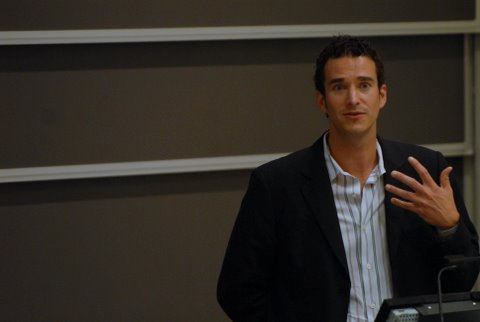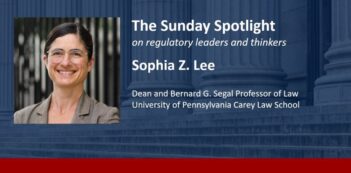
Penn Program on Regulation features number of experts who discuss risk in a number of regulatory contexts.

The Penn Program on Regulation concluded its Fall 2010 Risk Regulation seminar series last Tuesday, November 16th. That day, two directors of the Wharton Risk Management and Decision Processes Center, Cecilia Yen Koo Professor Howard Kunreuther (Co-Director) and Dr. Erwann Michel-Kerjan (Managing Director) discussed their paper Overcoming Myopia: Learning From the BP Oil Spill and Other Catastrophes.

In a talk entitled “Long-Term Strategies for Reducing Losses from Extreme Events,” Kunreuther and Michel-Kerjan discussed the role of multi-year insurance contracts and well-enforced regulations in overcoming individuals’ misperception of risk and reducing damage and paying for losses from extreme events like 9/11, Hurricane Katrina, and the BP oil spill. They argued that the National Flood Insurance Program, which President Obama recently extended, is an opportunity to get it right.

In the October seminar, on the 26th, Penn hosted Wendy Wagner, the Joe A. Worsham Centennial Professor of the University of Texas School of Law, who discussed “Capture by Information: How Information Warfare is Waged in the Administrative State.” The talk was developed from Professor Wagner’s article entitled Administrative Law, Filter Failure, and Information Capture and her work on her forthcoming book, Information Capture (Cambridge University Press).
She argued that regulated parties, and others with significant resources and high stakes at issue, overwhelm regulatory agencies with enormous amounts of highly detailed, technical information. This excessive information loads down governmental proceedings and discourages less well-financed groups from attempting to influence the regulatory process. The result, she argued, is less regulation needed to protect public health.
The first Fall 2010 seminar, held in September, was titled, “Regulating from Nowhere: Environmental Law and the Search for Objectivity” by Douglas Kysar, Yale Law School’s Joseph M. Field ‘55 Professor Law.

Drawing from his new book, Regulating from Nowhere: Environmental Law and the Search for Objectivity (Yale University Press, 2010), Professor Kysar argued for discarding cost-benefit analysis and other empirical assessment and formal choice models when determining how to regulate life-threatening behavior. Specifically, in environmental, safety, and health regulation, he called for relying on the precautionary principle to encourage moral self-awareness in the political community. Dominant economic models do not treat protecting life differently from any other cost, he argued, and so should be replaced with an emphasis on moral responsibility.
The Risk Regulation Seminar Series is a monthly seminar jointly sponsored by the Penn Program on Regulation (PPR), the Wharton Risk Management & Decision Processes Center, and the University of Pennsylvania Initiative for Global Environmental Leadership. Seminars will resume again in January 2011. More information is available on the PPR website.



